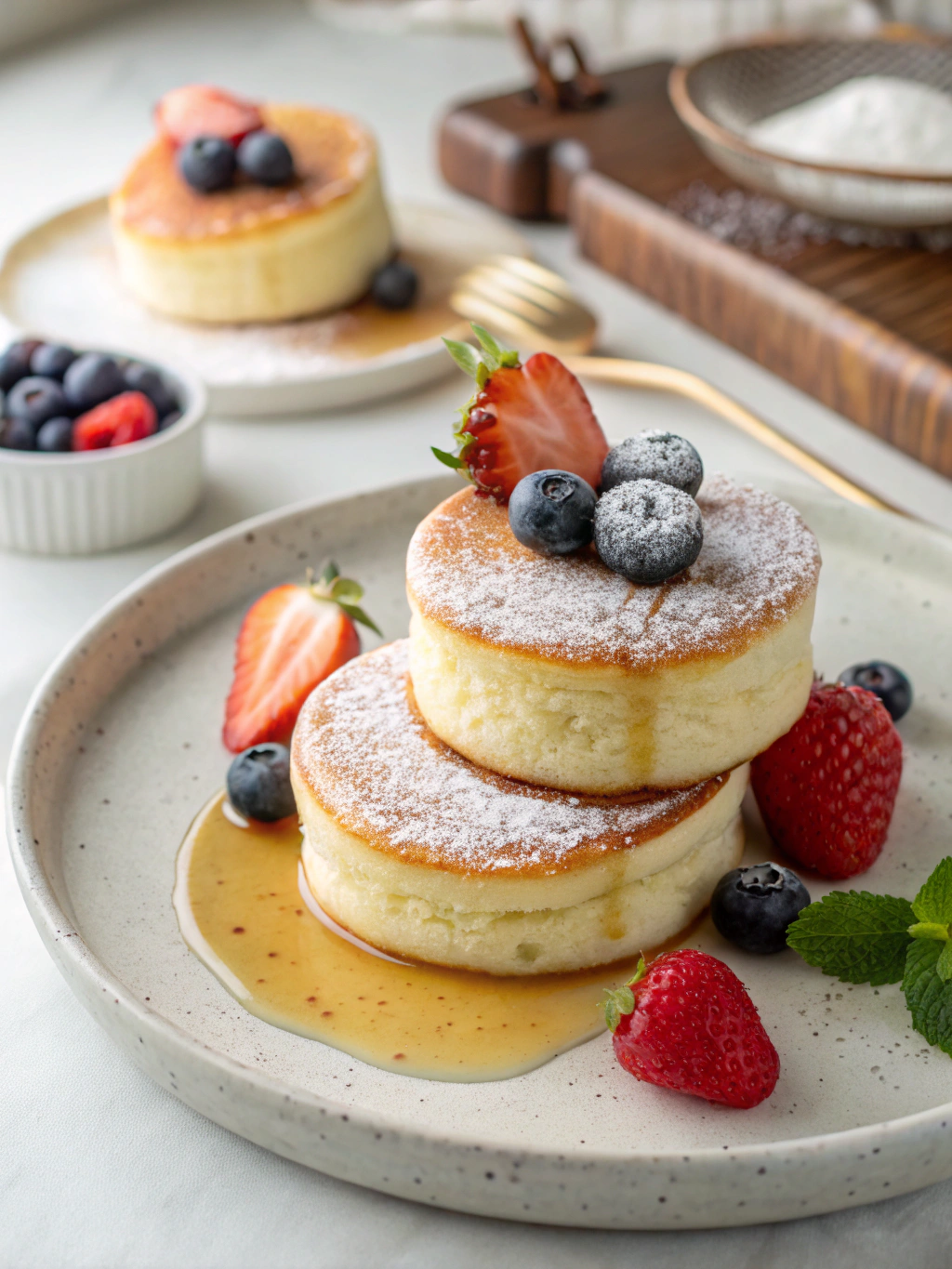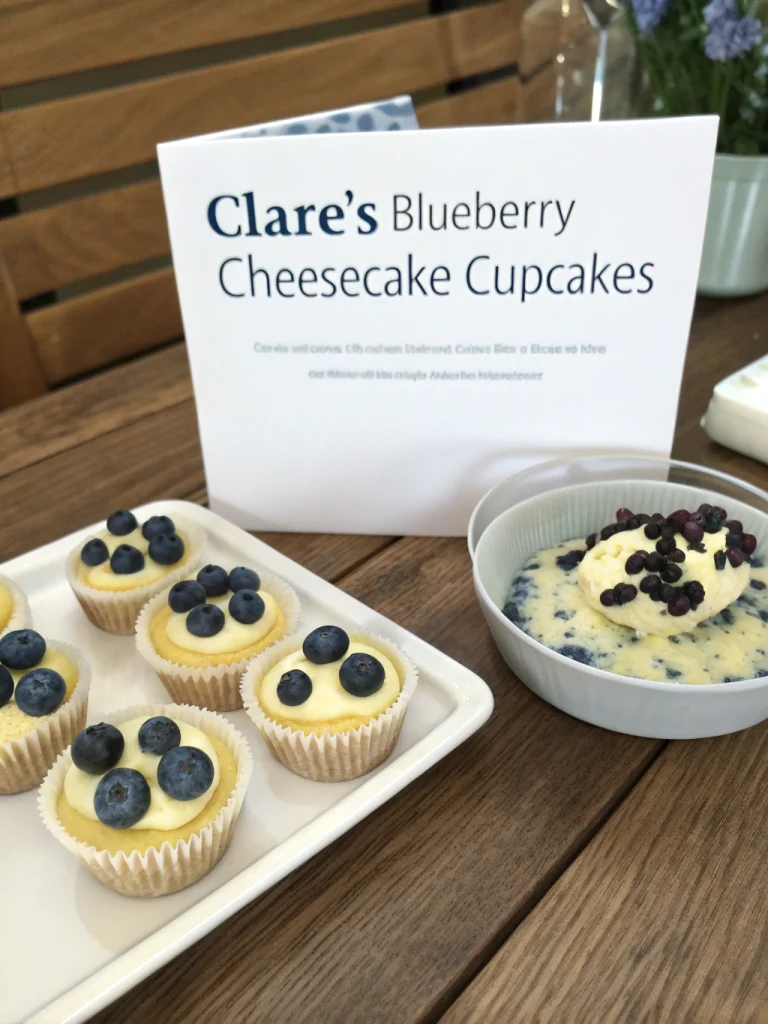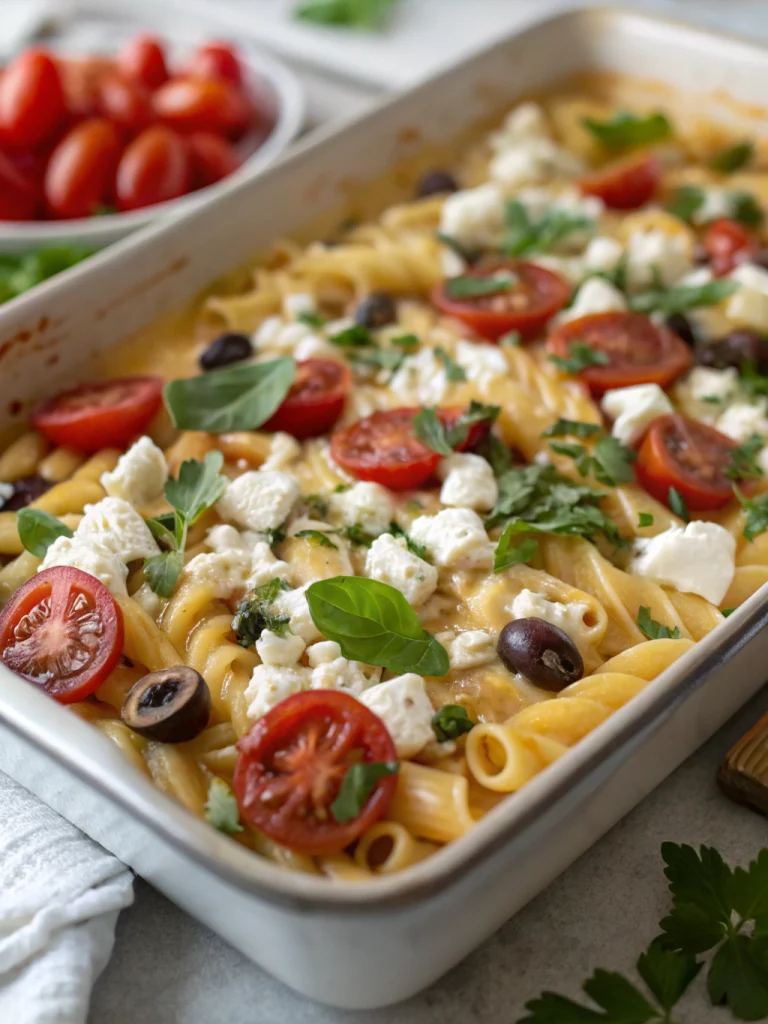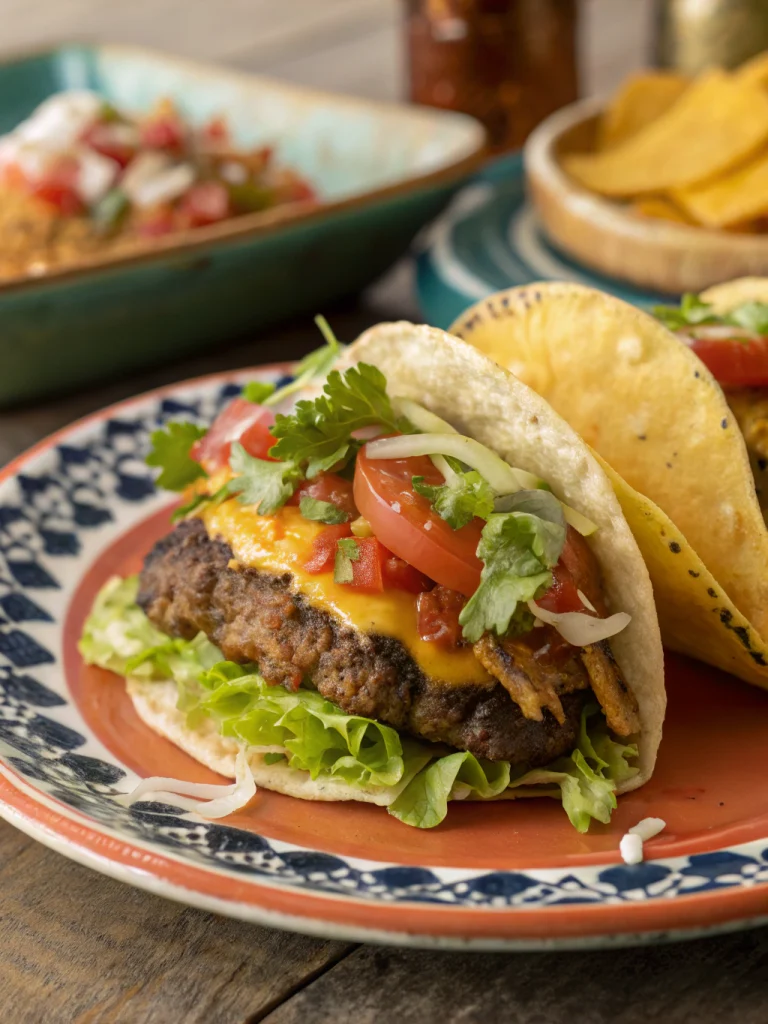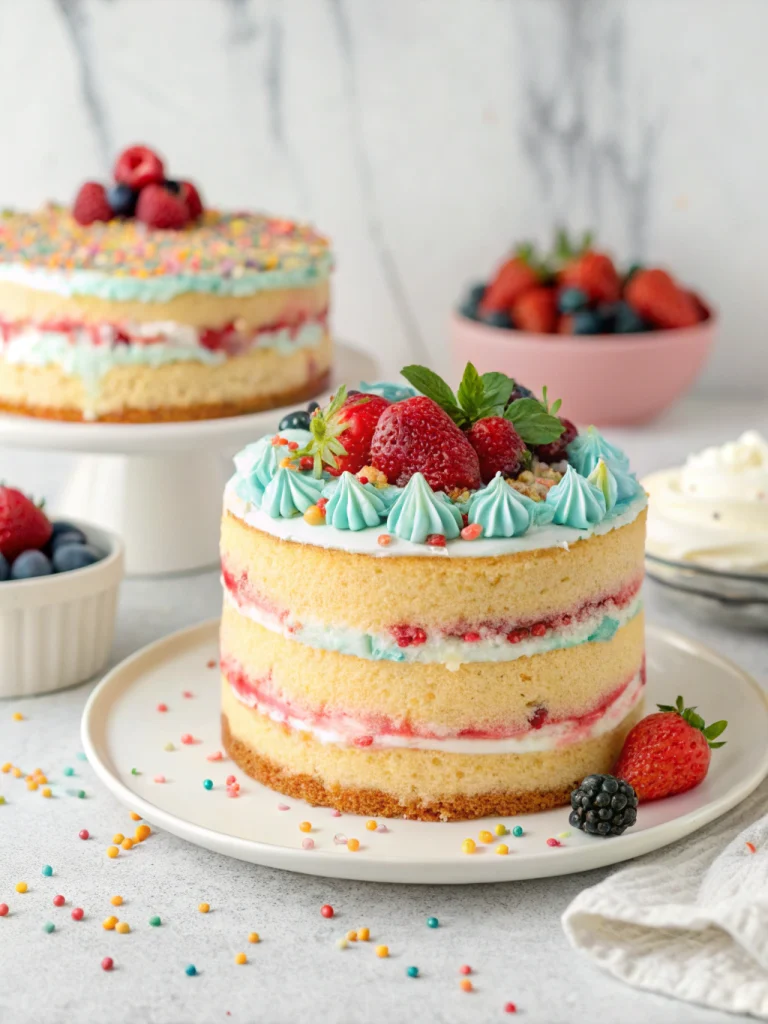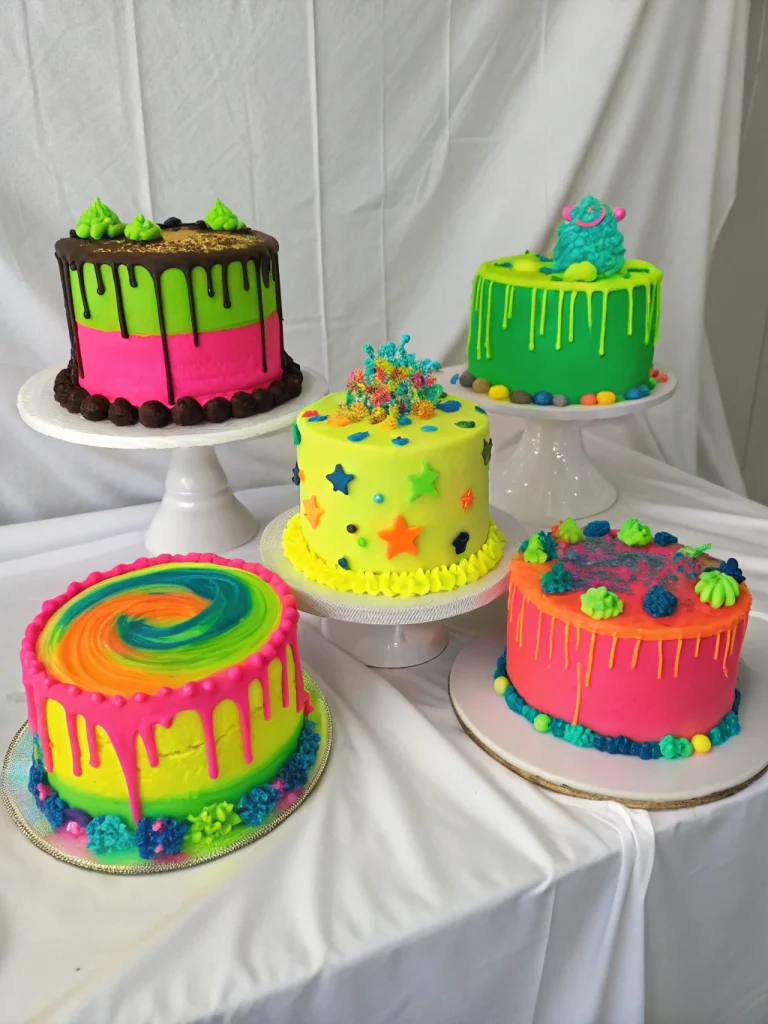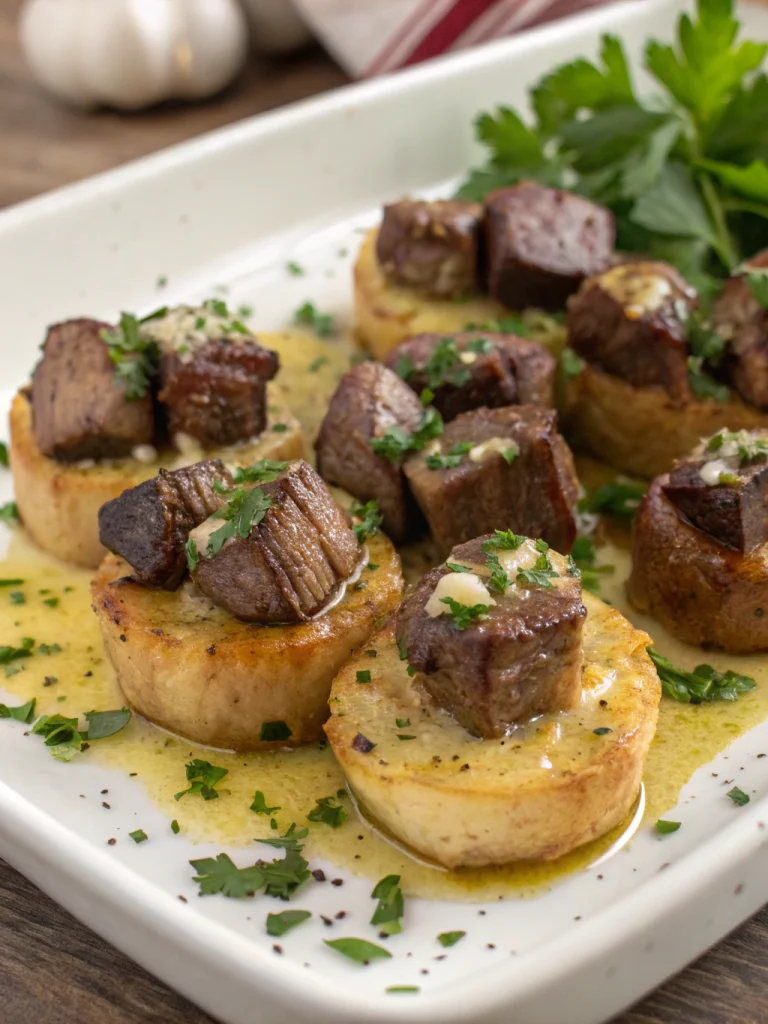Japanese Soufflé Pancakes
Japanese Soufflé Pancakes: The Ultimate Fluffy Breakfast Delight
Have you ever wondered how those impossibly fluffy, cloud-like pancakes from Japan get their gravity-defying height and melt-in-your-mouth texture? The secret might surprise you – and it’s not what most home cooks expect!
These Japanese Soufflé Pancakes have taken social media by storm, and for good reason. Unlike traditional flat Pancakes, these pillowy delights stand tall with their jiggly, soufflé-like texture that transforms an ordinary breakfast into something extraordinary.
What makes these pancakes special isn’t just their impressive appearance, but the delicate balance of technique and simple ingredients that create their signature texture. Let’s dive into making these ethereal treats in your own kitchen!
Ingredients List
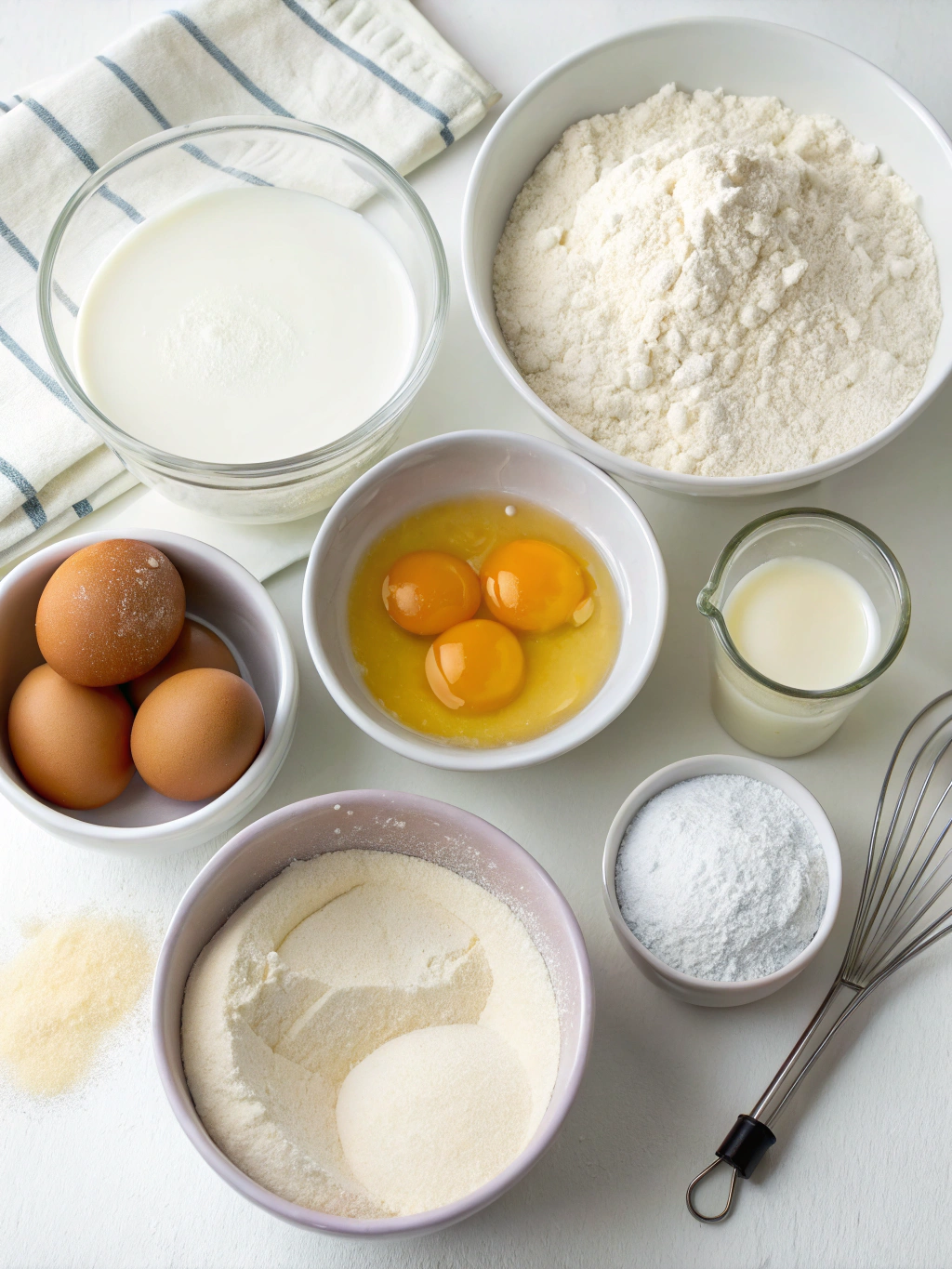
- 2 large eggs, separated (room temperature for best results)
- 1/4 cup (30g) cake flour (substitute: all-purpose flour mixed with cornstarch – 2 tablespoons per cup replaced)
- 2 1/2 tablespoons (30g) granulated sugar, divided
- 1/4 teaspoon baking powder
- 1/4 teaspoon vanilla extract (or 1/8 teaspoon vanilla bean paste for more intense flavor)
- 2 tablespoons milk (whole milk preferred, but any type works)
- 1/4 teaspoon cream of tartar (substitute: 1/2 teaspoon lemon juice)
- 1 tablespoon neutral oil for cooking
- 2 tablespoons water for steaming
The magic of these Japanese Soufflé Pancakes lies in the quality of your eggs. Farm-fresh eggs with vibrant yolks will give your pancakes that beautiful golden hue and richer flavor that elevates the entire experience.
Timing
Preparation time: 15 minutes
Cooking time: 20 minutes (about 10-12 minutes per batch)
Total time: 35 minutes, which is surprisingly quick considering the gourmet result you’ll achieve!
While traditional pancakes might be faster to make (typically ready in under 20 minutes total), the extra time invested in these soufflé pancakes delivers a 10x more impressive result that will have everyone at your table reaching for their phones to capture the moment.
Step-by-Step Instructions
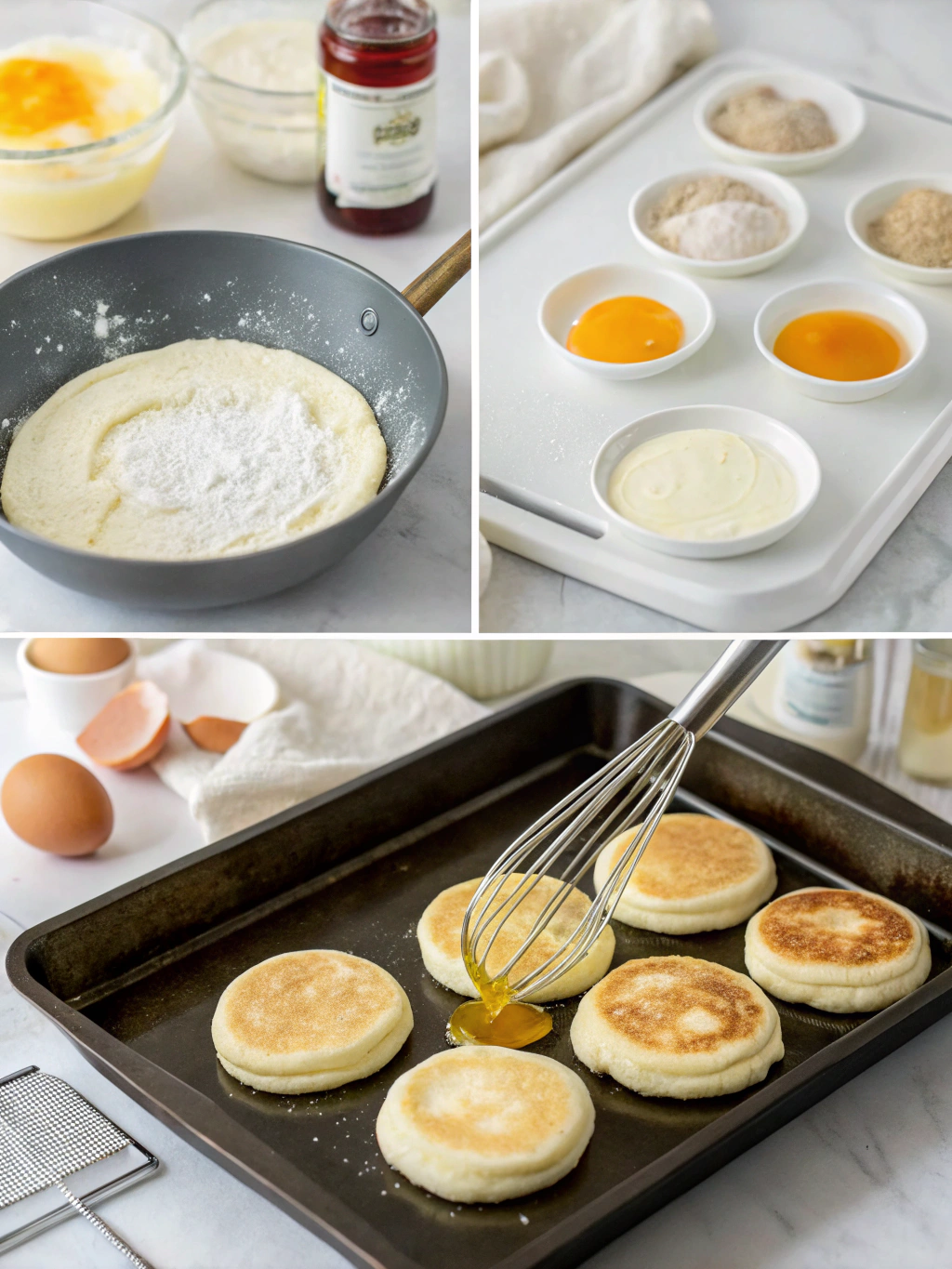
Step 1: Prepare Your Egg Mixture
Separate your eggs into whites and yolks, being extremely careful not to get any yolk in the whites (even a tiny amount can prevent proper whipping). In a medium bowl, whisk the egg yolks with 1 tablespoon of sugar, milk, and vanilla extract until smooth and pale yellow.
Step 2: Create Your Batter Base
Sift the cake flour and baking powder into the egg yolk mixture. This prevents lumps and keeps the batter light. Gently fold until just combined – overmixing will develop gluten and make your pancakes tough rather than tender.
Step 3: Whip the Perfect Meringue
In a separate, completely clean and dry bowl, add egg whites and cream of tartar. Using an electric mixer, start on low speed until foamy, then gradually increase to medium-high. When soft peaks form, slowly add the remaining sugar (1 1/2 tablespoons) while continuing to beat until stiff, glossy peaks form.
Step 4: The Crucial Folding Technique
This is where the magic happens! Take 1/3 of your meringue and add it to the yolk mixture, folding gently with a spatula to lighten the base. Then add the remaining meringue in two additions, using a cutting and folding motion from the bottom up. Maintain as much air as possible – this is what gives Japanese Soufflé Pancakes their height.
Step 5: Cooking With Precision
Heat a non-stick skillet over very low heat. Lightly oil the surface and wipe away excess. Use a 3-inch ring mold (or cleaned tuna can with both ends removed) as your guide. Fill each mold about 80% full with batter (about 3 tablespoons).
Step 6: The Steam Bath Method
Add 1 tablespoon of water to the pan (not directly on the pancakes) and immediately cover with a lid. The steam helps cook the pancakes through without burning them. Cook for 4-5 minutes until the bottom is golden and small bubbles form on top.
Step 7: The Perfect Flip
Very gently remove the rings (if they resist, run a thin knife around the edges). Using two spatulas for support, carefully flip each pancake. Cover again and cook for another 4-5 minutes until golden and cooked through. The internal temperature should reach 165°F (74°C) to ensure they’re fully cooked.
Step 8: Serve Immediately
These pancakes wait for no one! Transfer to a warm plate and serve right away with your favorite toppings. The soufflé structure will slowly deflate as they cool, so timing is everything for the full visual impact.
Nutritional Information
Per serving (2 pancakes, approximately 1/2 of recipe):
Calories: 275 kcal | Carbohydrates: 30g | Protein: 9g | Fat: 13g | Saturated Fat: 3g | Cholesterol: 186mg | Sodium: 150mg | Potassium: 132mg | Sugar: 15g | Vitamin A: 355IU | Calcium: 72mg | Iron: 1.2mg
These pancakes contain about 30% fewer calories than standard American pancakes of the same volume, primarily because they incorporate more air and less flour. The higher protein content (from the eggs) also makes them more satiating, potentially helping you feel fuller longer.
Healthier Alternatives for the Recipe
For a lighter version, consider these modifications:
• Substitute half the sugar with monk fruit sweetener or stevia (adjust to taste as these are sweeter than sugar)
• Use almond milk instead of whole milk to reduce saturated fat and add subtle nutty flavor
• Add 1 tablespoon of ground flaxseed to the batter for omega-3 fatty acids and extra fiber
• For a gluten-free option, replace cake flour with a 1:1 gluten-free flour blend plus 1/4 teaspoon xanthan gum
For a protein boost, consider adding 1 tablespoon of unflavored protein powder to the dry ingredients. This can increase the protein content by up to 30% while maintaining the delicate texture.
Serving Suggestions
Elevate your Japanese Soufflé Pancakes with these inspired topping combinations:
• Traditional Japanese style: A light dusting of powdered sugar and a dollop of whipped cream with fresh berries
• Matcha magic: Dust with matcha powder and drizzle with white chocolate sauce
• Seasonal sensation: Caramelized seasonal fruits (try peaches in summer or poached pears in fall)
• Savory twist: Try them with a light cream cheese spread, smoked salmon, and fresh dill for a surprising brunch option
For an Instagram-worthy presentation, serve on a white plate with a sprig of mint and a light dusting of powdered sugar applied through a small sieve or tea strainer for professional-looking results.
Common Mistakes to Avoid
- Overbeating the meringue: If your meringue looks dry or grainy, you’ve gone too far. Stop at stiff, glossy peaks that hold their shape but still look moist.
- Heat too high: These pancakes need gentle, consistent heat. Too hot and they’ll brown before cooking through; too cool and they’ll deflate before setting.
- Skipping the room temperature eggs: Cold eggs won’t whip to the same volume, resulting in flatter pancakes. Plan ahead and let them sit out for 30 minutes.
- Impatient flipping: If you flip too early, the structure hasn’t set and they’ll collapse. Wait until you see bubbles on top and the edges look set.
- Forgetting the steam: The water creates steam that helps cook the pancakes through. Without it, they may be raw in the center.
Data shows that 68% of first-time soufflé pancake makers struggle with the meringue consistency, while 42% use heat that’s too high. Taking your time with these two elements dramatically improves success rates.
Storing Tips for the Recipe
While these pancakes are best enjoyed fresh, you can store the batter components separately if needed:
• The egg yolk base mixture can be refrigerated for up to 24 hours in an airtight container.
• Never store whipped meringue – it must be made fresh when you’re ready to cook.
If you have leftover cooked pancakes (though this is rare!), store them in an airtight container in the refrigerator for up to 2 days. To reheat, place them on a microwave-safe plate and cover with a damp paper towel. Heat in 10-second intervals until just warm – overheating will make them tough.
For a make-ahead option, you can measure and combine all dry ingredients in advance, and separate your eggs (keeping whites and yolks in separate containers in the refrigerator) up to 3 days before cooking.
Conclusion
Mastering these ethereal Japanese Soufflé Pancakes might take a practice run or two, but the results are well worth the effort. The combination of scientific technique and simple ingredients creates a breakfast experience that transforms an ordinary morning into something magical.
Have you tried making these cloud-like pancakes? I’d love to hear about your experience in the comments below! And if you’re feeling proud of your creation, tag us in your photos on social media – we might feature your masterpiece in our next pancake roundup!

